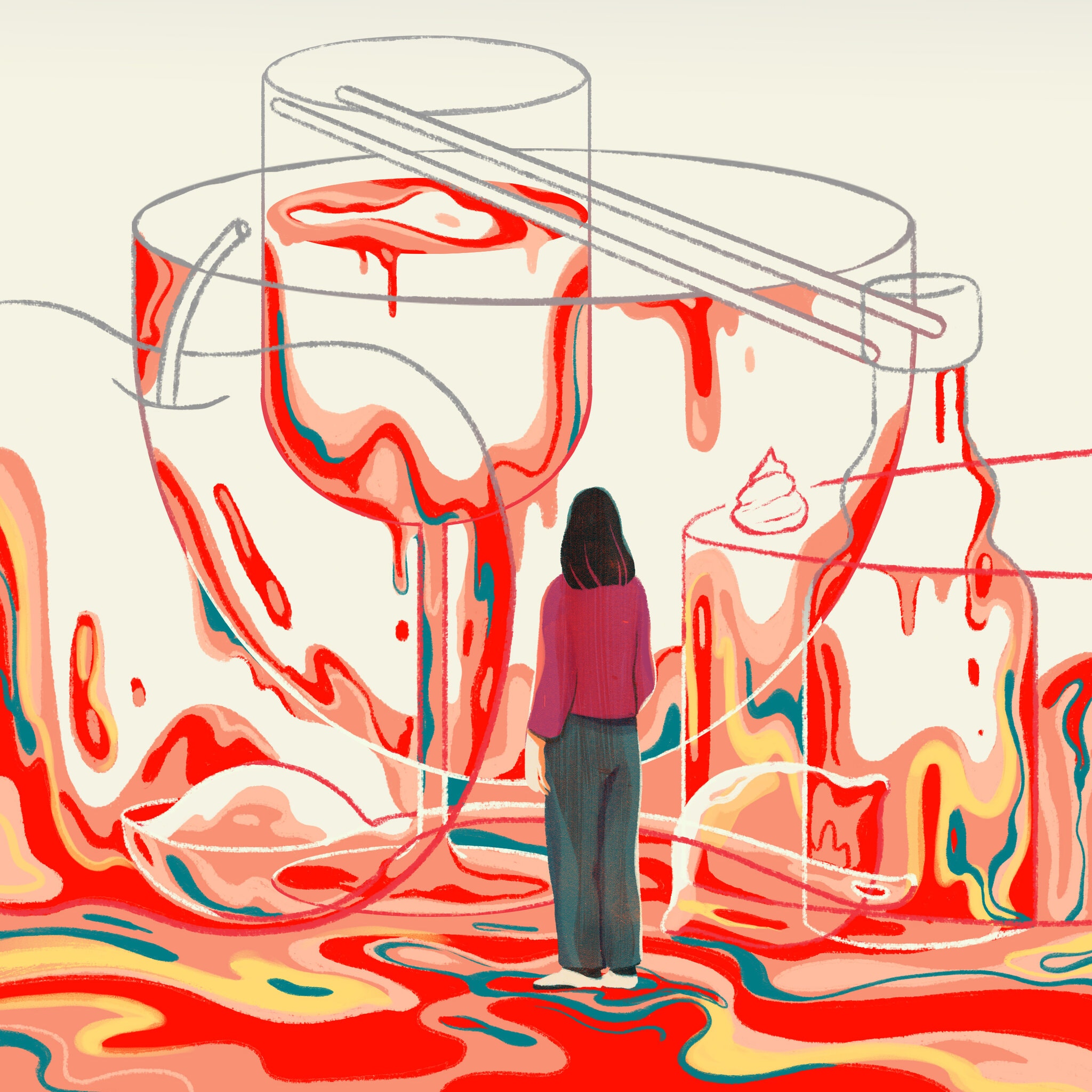LAS VEGAS — After I tested positive for Covid-19, I ordered panang curry. When the food arrived, I lifted the plastic lid, expecting the scent of makrut lime, lemongrass and ginger. But there was nothing. I plucked a forkful of tofu from the sauce. It was flavorless.
My abilities to smell and taste had suddenly evaporated. And in the month since I’ve been sick, they have yet to return.
Earlier in the pandemic, my husband and I developed a ritual of ordering comfort food every Friday. We live in Las Vegas — a city that has been hit hard by the virus — and found meals from beloved local restaurants to be small but crucial gifts in a glittering landscape that was losing its luster. In March, my husband was laid off from a casino, and I lost a majority of my clients as a freelance writer. In June, the Strip reopened to unmasked tourists drunk on margaritas and the falsehood of a world without disease. By August, we were sick.
Unable to get out of bed days later, I sent out a tweet bemoaning Covid-19. Someone replied, “Whatever you do, don’t Google ‘When will I get my smell and taste back.’” I did exactly that and was met with article after article about anosmia — smell blindness — many of which suggested its impact could be long-term.
Throughout this sea change, my only sense of joy was the taste of food. The red velvet cake I ate on my birthday in lieu of a canceled California vacation. The balsamic roasted brussels sprouts I cooked after I lost another client. The spicy bourbon fried chicken from the sun-drenched cafe where I used to read on leisurely Sundays.
The ability to taste was my connection to life before the coronavirus. And suddenly it was — and still is — gone.
My first week without taste and smell, I searched constantly for flashes of my lost senses. I sniffed candles, opened leftovers in my refrigerator, buried my face in my dog’s fur in search of that puppy smell. Even spoonfuls of hot sauce, pinches of salt, amounted to nothing. I worried — if I ate spoiled food, would I know? If there was a gas leak in my house, would it kill me?
“Today marks exactly 5 months since losing my taste/smell completely,” someone reported.
“There is hope,” another said, sharing that she had regained the ability to smell.
Some expressed sadness over seeing friends enjoying meals. Others floated conspiracies — had masks caused this? Many discussed smell training, a method requiring anosmia sufferers to sniff scents like eucalyptus, lemon and rose every day in hopes of turning the memory of them into reality.
Occasionally, someone would celebrate the return of taste and smell only to lose the sensations again or find that they had changed. Suddenly sugar was unbearably sweet, wine intolerably bitter. Phantom scents filled their nostrils — cleaning chemicals, gas.
I read the group’s Facebook posts for hours, commiserating with strangers around the world who shared this one strange loss. In a way it felt frivolous. After all, many of us have already recovered and will avoid panicked emergency rooms. We will continue to live our lives — even if they are lives where chocolate tastes like chalk and whiskey tastes like water.
But what is life without taste, without smell? If I never regain these abilities, will the question “What do you want for dinner” mean anything? Will a nice restaurant still have value? How will it feel when someone cooks for me, watches me take the first bite and waits for my reaction? What is the point of perfume, of piney mountain air?
In a way, anosmia is the perfect metaphor for the world during Covid-19: devoid of pleasures we didn’t realize we might not always have.
Each day I hope for the familiar aromas and flavors to come back. I wait like the rest of us, for the things I love to return.
Krista Diamond (@KristaDiamond) is a freelance and fiction writer.
Source: Opinion | The Strange Grief of Losing My Sense of Taste – The New York Times













